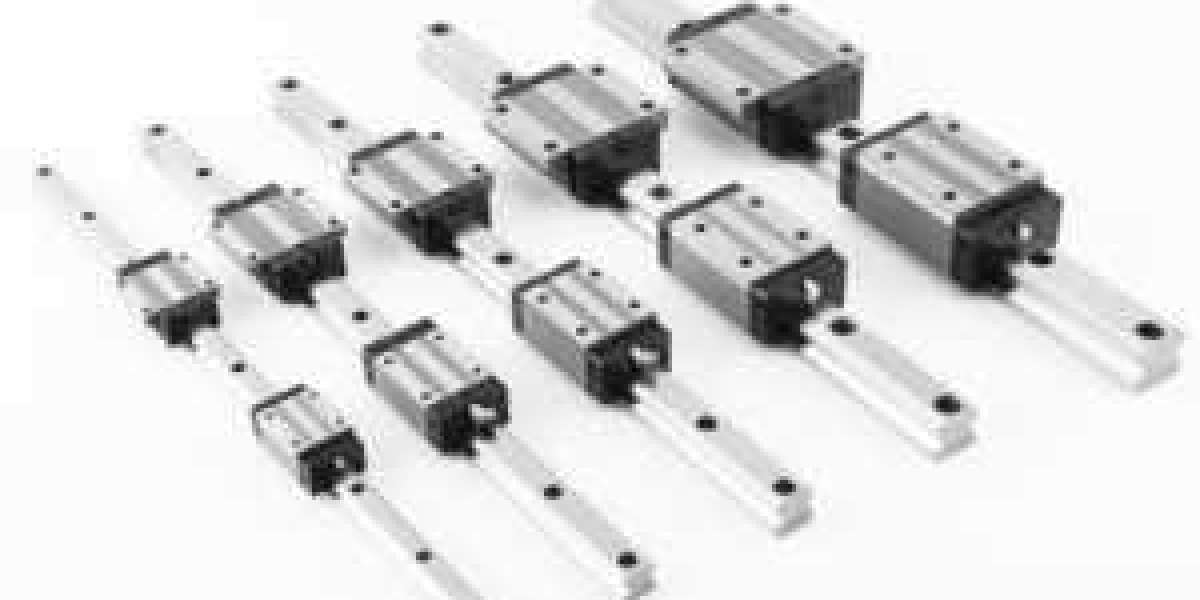For companies looking to enhance their automation capabilities, YH Linear Motion provides robust and high-precision linear motion solutions. Explore their full range at https://yhlinear.com and see how their products can optimize your manufacturing processes.
What Are Linear Motion Systems?
Linear motion systems are mechanical assemblies that enable controlled movement along a straight path. Unlike rotary systems, which involve circular motion, linear systems provide precise translation. A typical system includes:
Linear rails or guideways, which define the path of motion.
Carriages or sliders, which carry loads along the rails.
Rolling elements, such as balls or rollers, that reduce friction and maintain stability.
Actuators, such as ball screws or linear motors, which provide movement and control.
These components work together to deliver smooth, repeatable, and accurate motion, which is essential for automation and high-speed manufacturing.
The Role of Linear Motion in Smart Factories
Smart factories rely on precision and repeatability. Linear motion systems are key enablers for:
Robotic arms and assembly systems: Ensuring accurate placement of parts during high-speed operations.
CNC machinery and milling: Maintaining precise tool paths for tight tolerances.
Conveyor systems: Providing smooth material transport to minimize vibration and damage.
Automated inspection equipment: Allowing sensors and cameras to move accurately for quality control.
Without reliable linear motion, smart factory operations would experience inconsistencies, reduced throughput, and increased maintenance costs.
Advancements in Linear Motion Technology
The linear motion industry has undergone significant technological advancements, including:
High-Precision Rails and Bearings
Modern rails are ground to micron-level accuracy, ensuring smooth motion even under heavy loads. Preloaded carriages reduce play, increasing rigidity and precision.Integrated Lubrication Systems
Self-lubricating carriages reduce maintenance requirements and extend service life, which is crucial for continuous factory operations.Smart Linear Systems
Sensors embedded in linear motion systems allow real-time monitoring of position, load, and wear. This data can be integrated into factory management software for predictive maintenance.Lightweight Materials
Advanced alloys and composites reduce weight while maintaining strength, contributing to energy efficiency and faster machine response times.Modular Design
Modular linear systems simplify installation, maintenance, and scalability, allowing factories to adapt quickly to changing production requirements.
Selecting Linear Motion Systems for Smart Factories
When choosing linear motion components, engineers must consider several key factors:
Load capacity: Ensuring the system can handle the maximum expected weight without deflection.
Stroke length: Selecting rails and carriages capable of covering the required range.
Speed and acceleration: High-speed applications require low-friction, rigid systems.
Environmental conditions: Dust, moisture, and temperature extremes necessitate specially designed systems.
Compatibility with automation: Systems should integrate seamlessly with robots, actuators, and control software.
Working with an experienced supplier like YH Linear Motion ensures access to products engineered for demanding industrial applications. Their solutions cover a wide range of linear rails, bearings, and actuators, guaranteeing reliability and performance. Learn more at https://yhlinear.com.
Benefits of Advanced Linear Motion in Smart Factories
Industries adopting state-of-the-art linear motion systems experience measurable benefits:
Improved Production Efficiency
Smooth, precise motion reduces cycle times and increases throughput.Higher Product Quality
Accurate motion ensures tight tolerances and consistent performance.Reduced Maintenance Costs
Durable components minimize downtime and extend service intervals.Energy Savings
Reduced friction and optimized motion decrease energy consumption.Scalability and Flexibility
Modular designs allow factories to expand or reconfigure production lines with minimal disruption.
Linear Motion in Emerging Industries
Beyond traditional manufacturing, linear motion systems are crucial in:
3D Printing and Additive Manufacturing
High-speed, precise movement ensures accurate layer deposition.Medical Automation
Laboratory automation and robotic surgery require precise, smooth motion.Semiconductor Manufacturing
Micron-level accuracy is essential for wafer handling and chip assembly.Renewable Energy Production
Linear actuators in solar tracking and energy storage systems optimize efficiency.
The Future of Linear Motion in Smart Factories
As factories become smarter, linear motion systems will continue to evolve:
IoT-Enabled Monitoring
Sensors embedded in linear rails and carriages will feed real-time data to predictive maintenance software, minimizing downtime.AI-Driven Motion Control
Artificial intelligence will optimize motion parameters, reducing energy use and wear while increasing precision.Nanometer-Level Precision
Advancements in materials and machining will enable linear motion systems to achieve ultra-high precision for emerging technologies like nanomanufacturing and biotechnology.Sustainable Design
Lightweight, energy-efficient materials and recyclable components will reduce environmental impact and operational costs.Integrated Smart Factory Systems
Linear motion systems will be part of fully integrated automation ecosystems, communicating seamlessly with robotics, conveyors, and sensors to maximize efficiency.
Conclusion
Linear motion systems are the unsung heroes of smart factories. By providing reliable, precise, and smooth motion, they enable high-speed, automated production across industries. From robotics and CNC machinery to semiconductor fabrication and medical automation, linear motion is at the core of modern manufacturing.
For companies looking to build or upgrade their smart factories, partnering with a trusted supplier is essential. YH Linear Motion offers a comprehensive range of high-quality linear rails, bearings, and actuators designed to meet the exacting demands of industrial automation. Explore their solutions today at https://yhlinear.com and unlock the full potential of your smart factory.
By investing in advanced linear motion systems, manufacturers can achieve higher productivity, improved product quality, and reduced operational costs — ensuring competitiveness in the increasingly automated industrial landscape.








